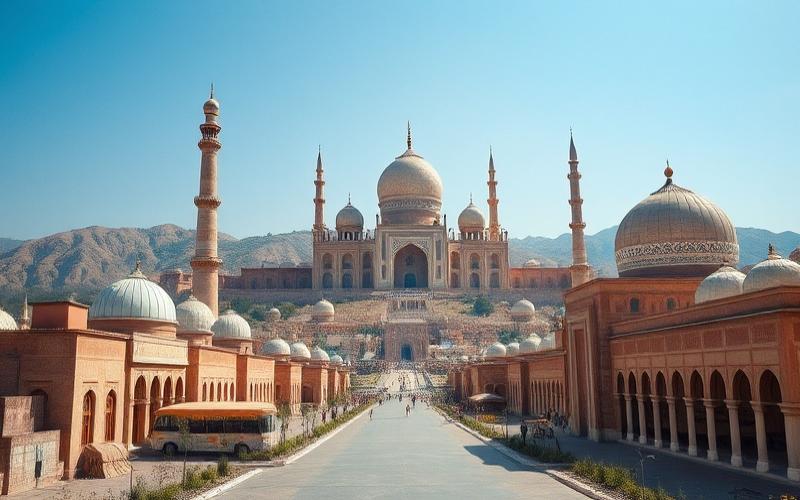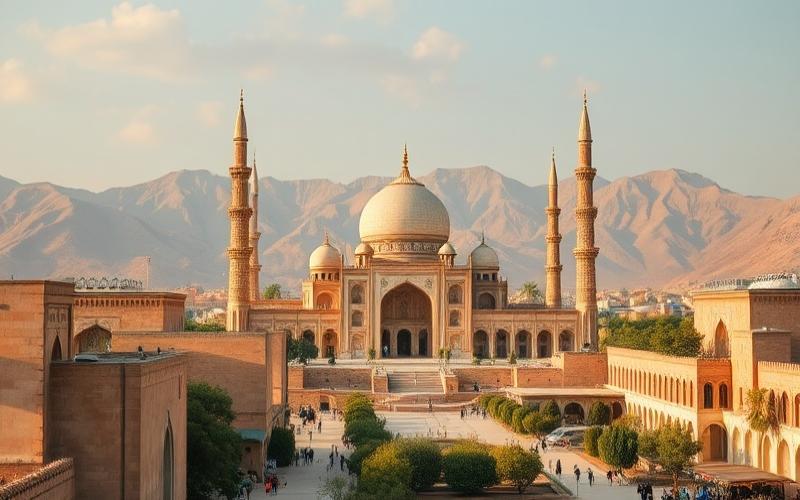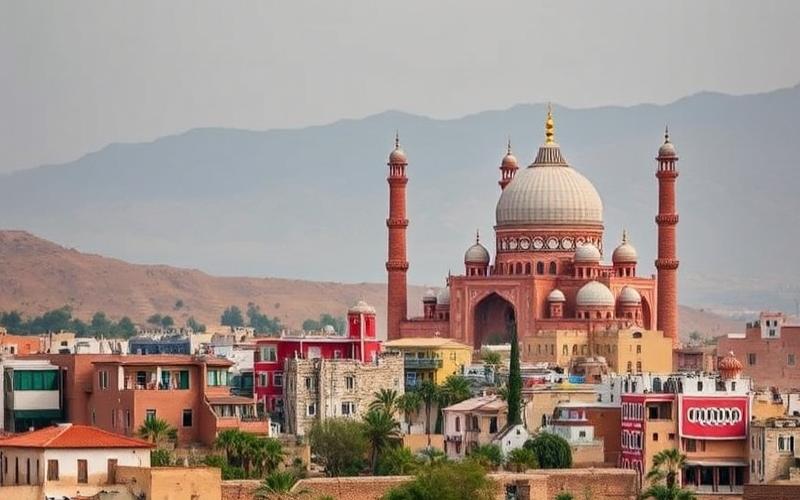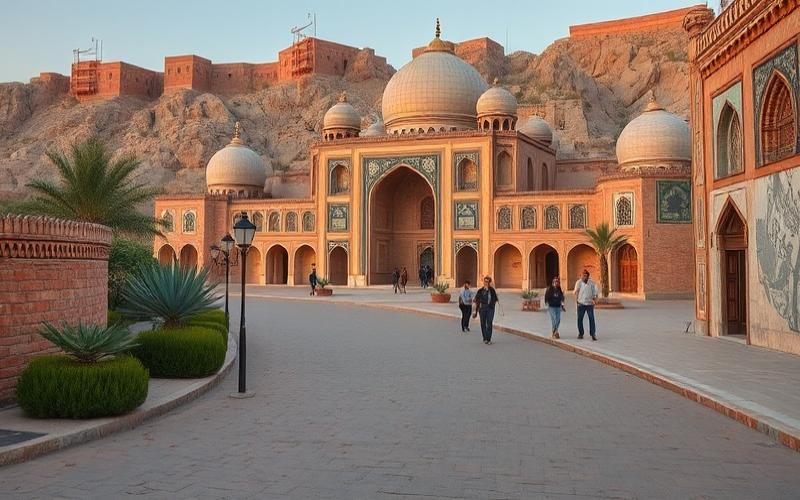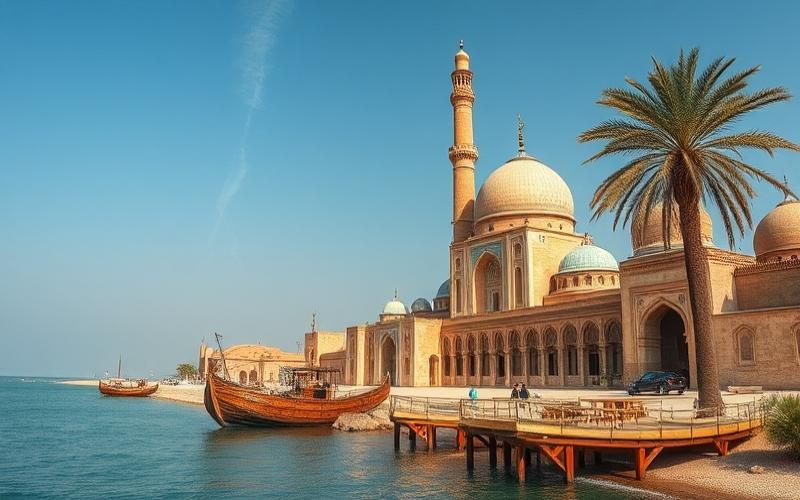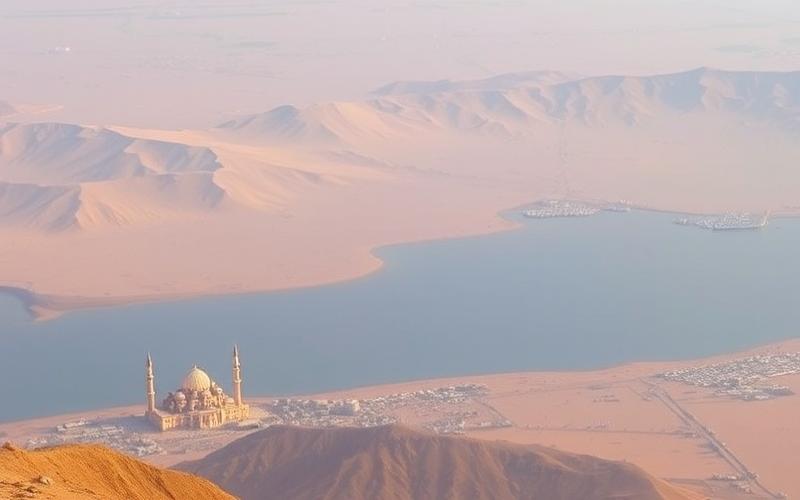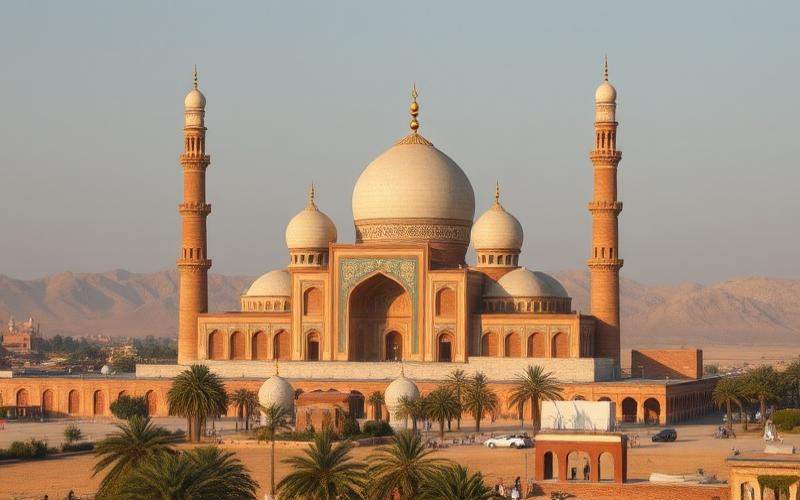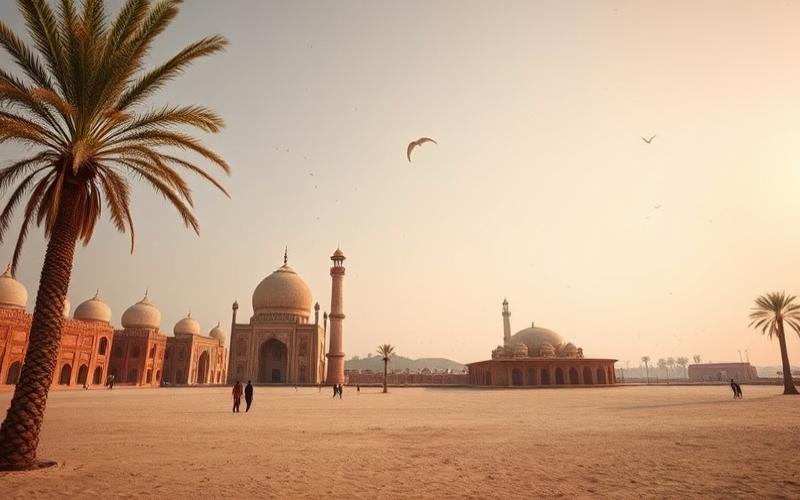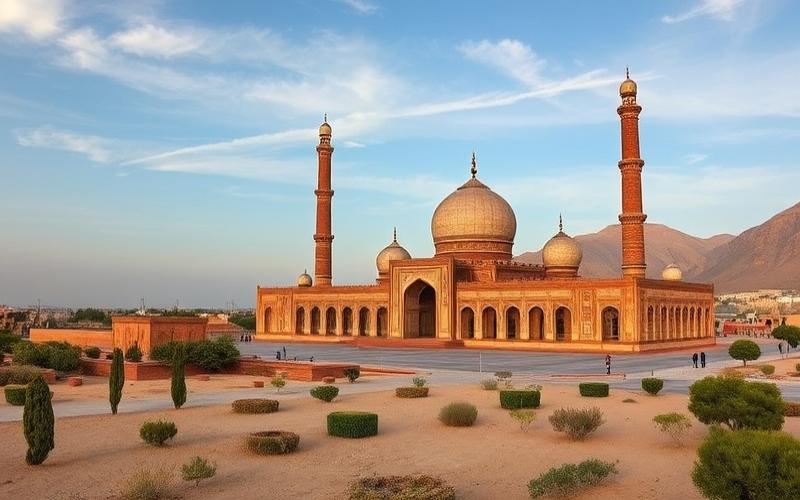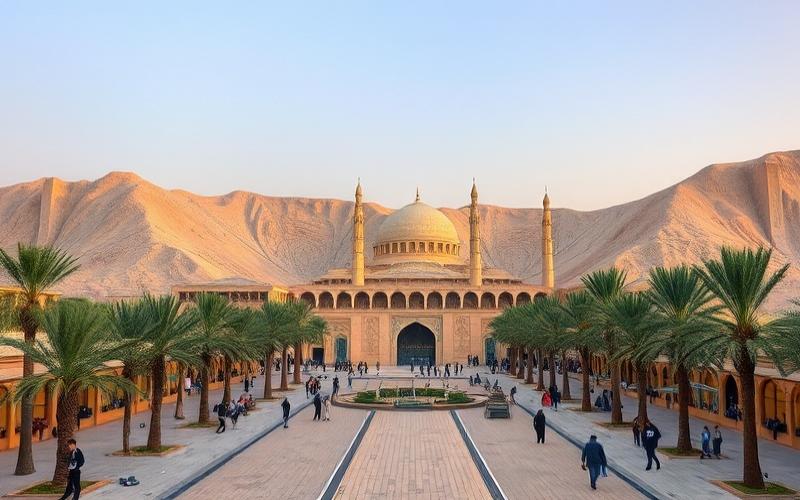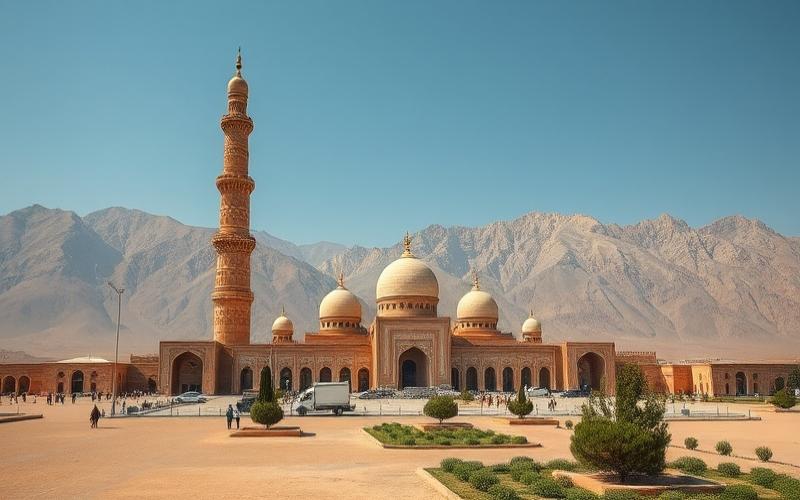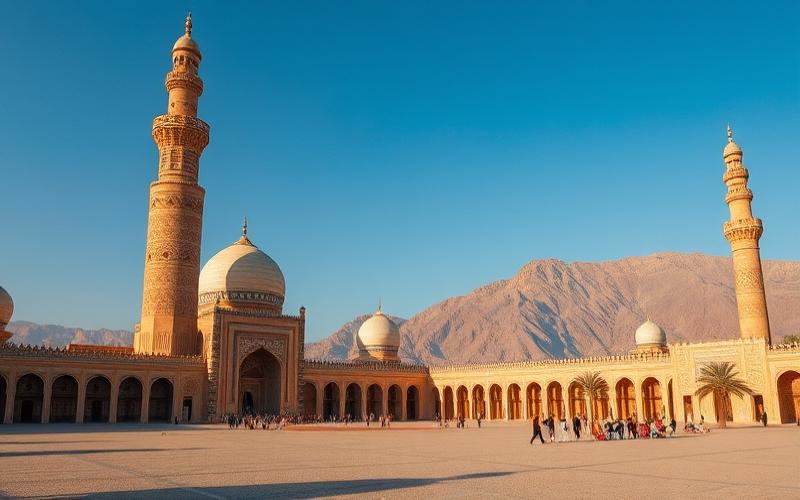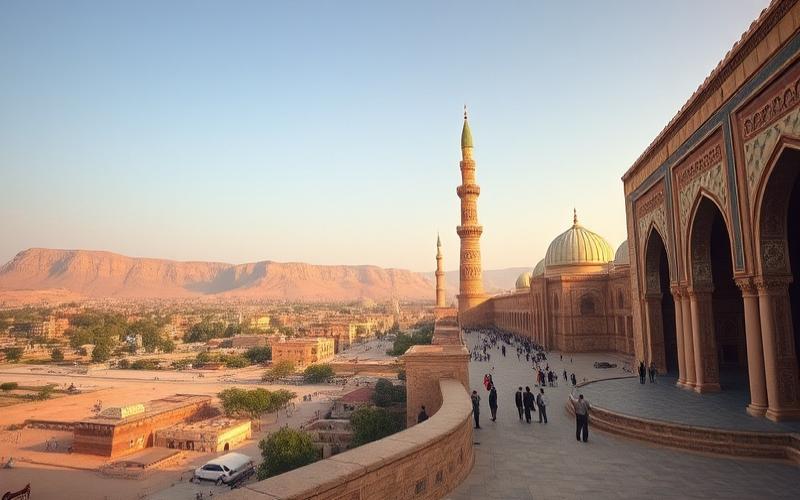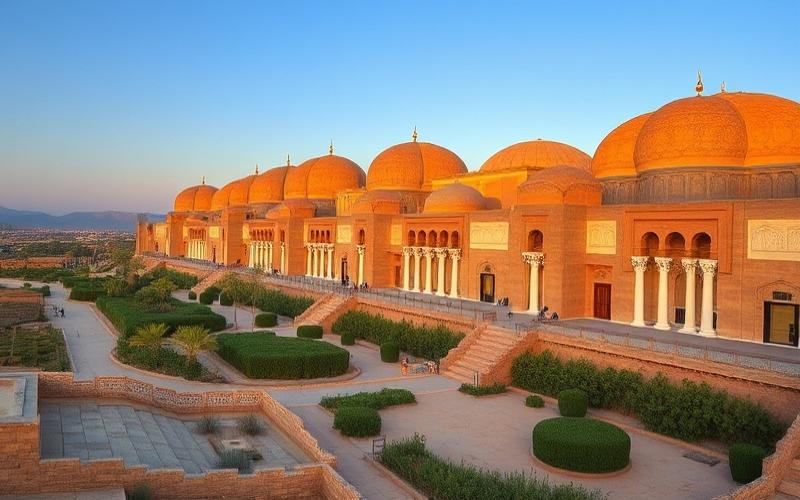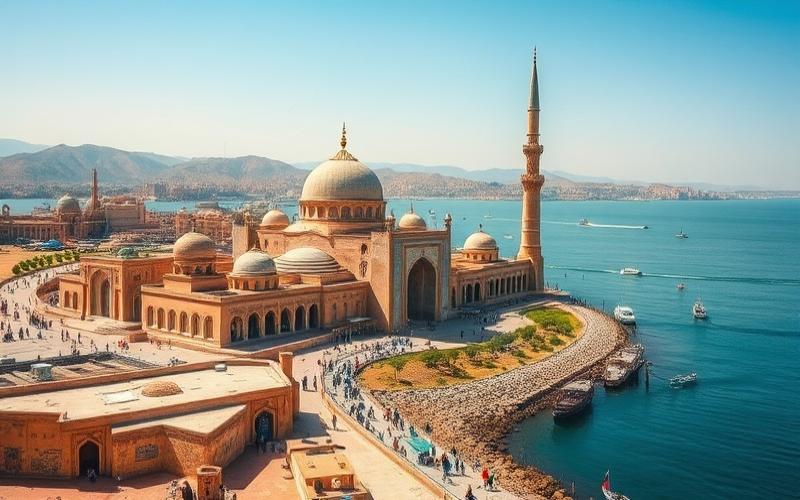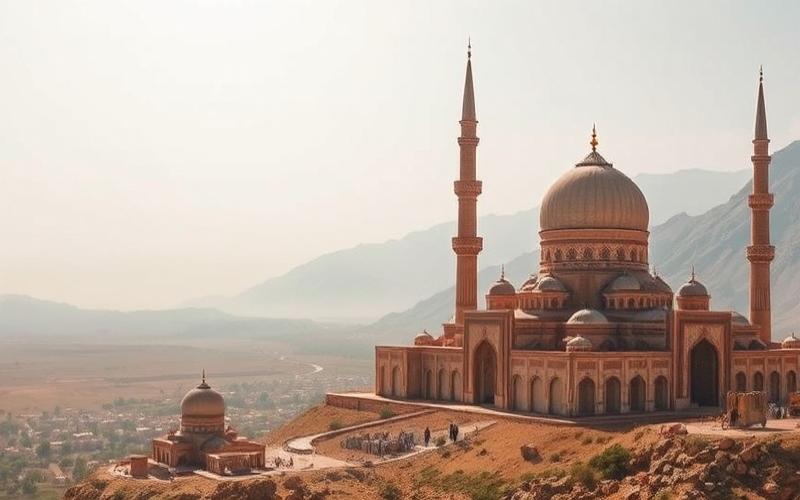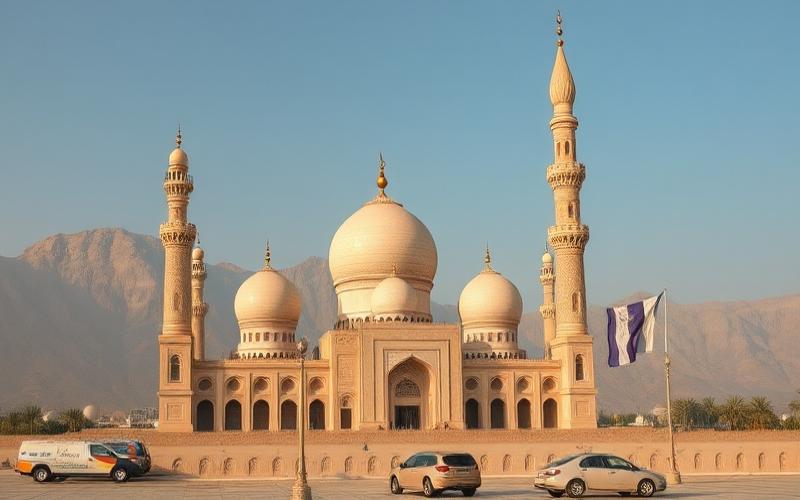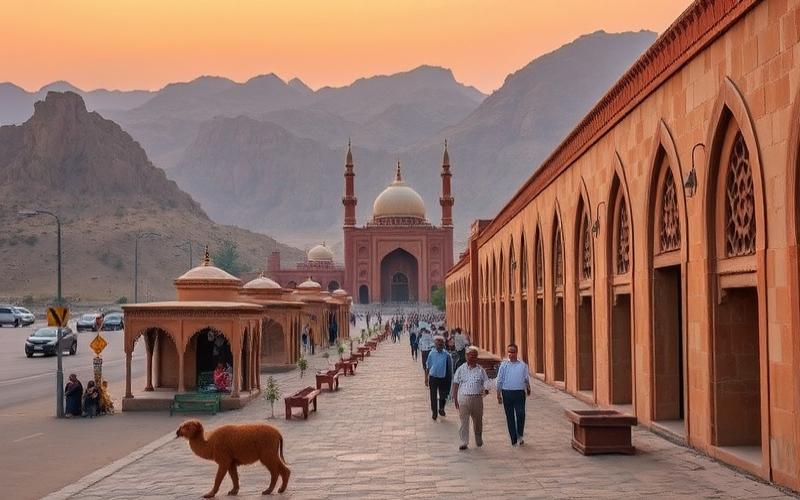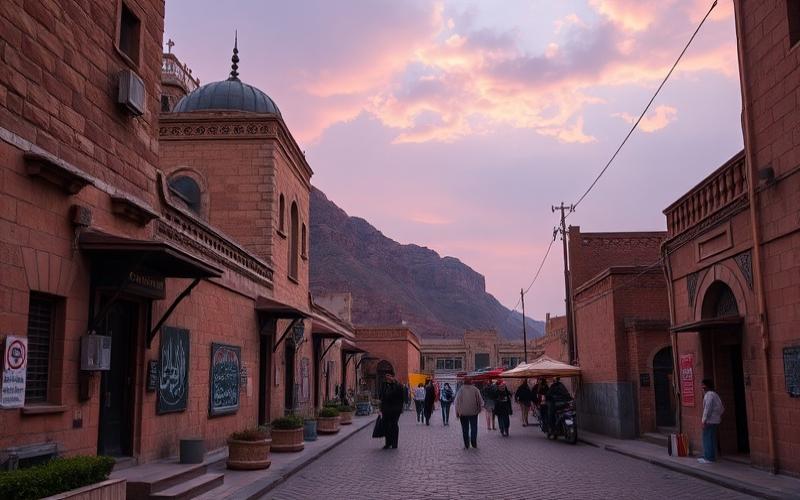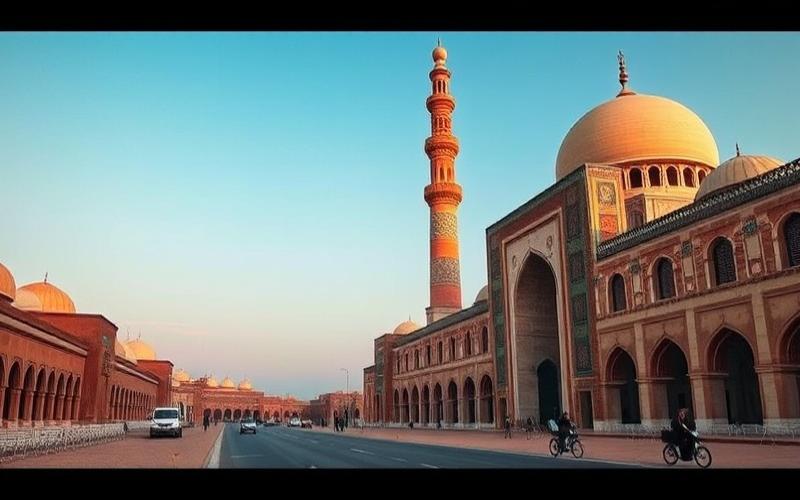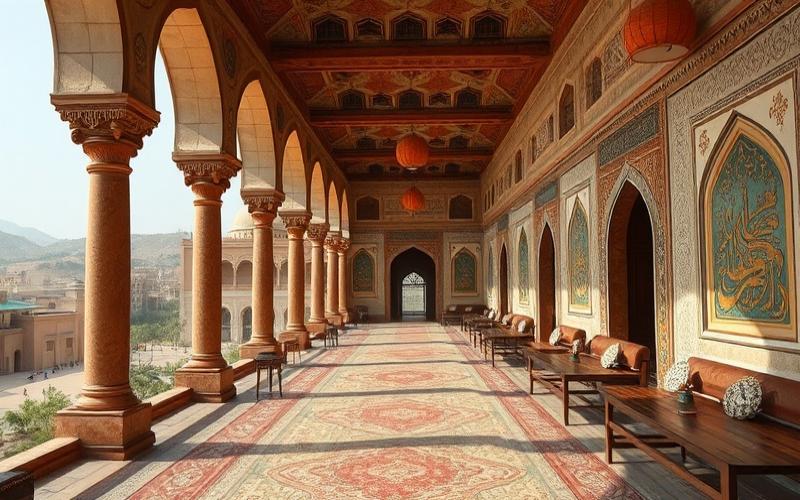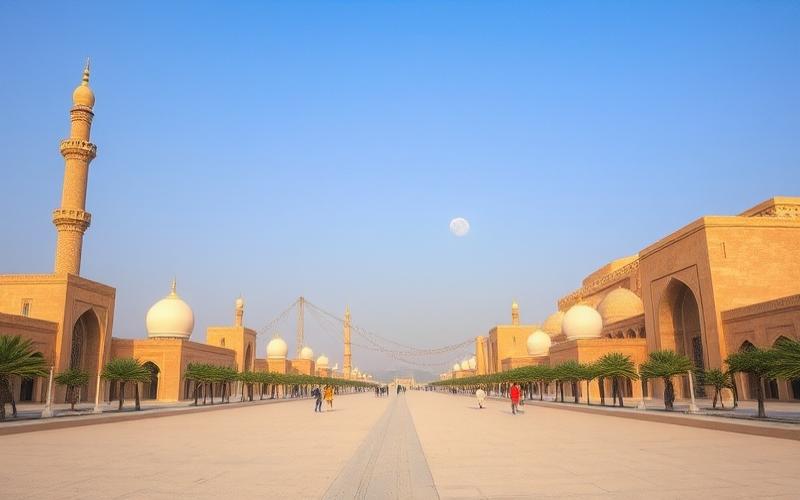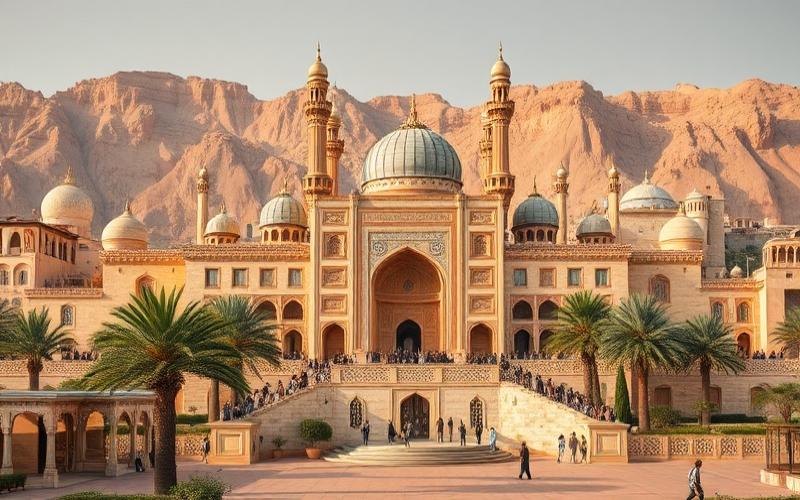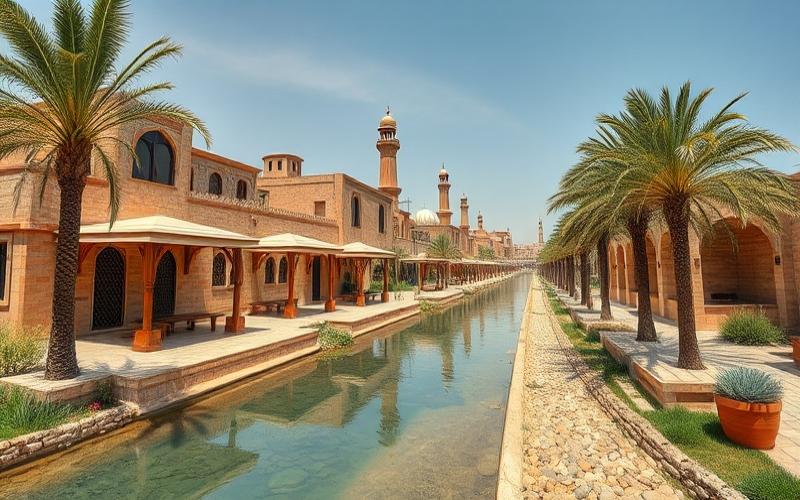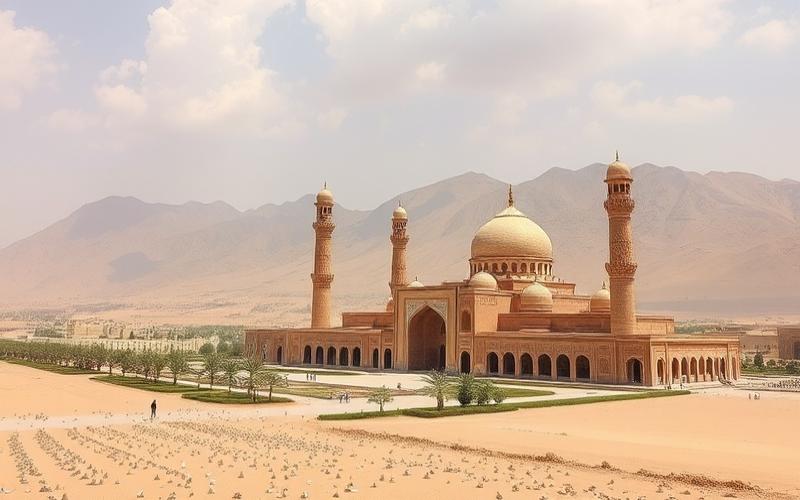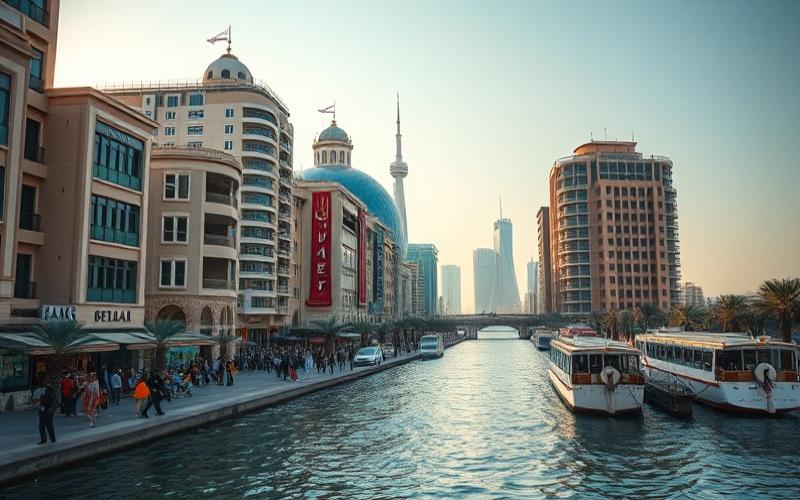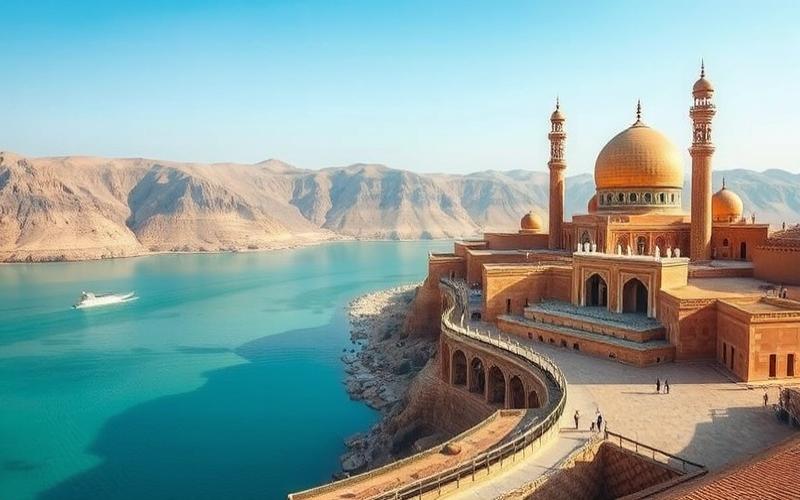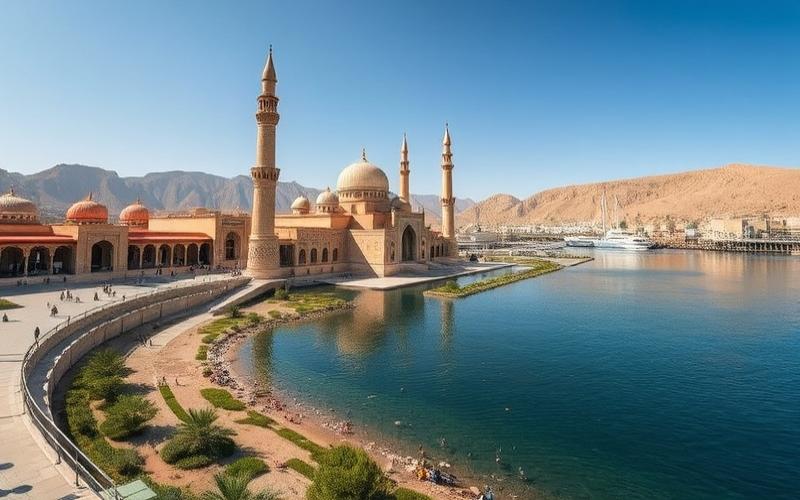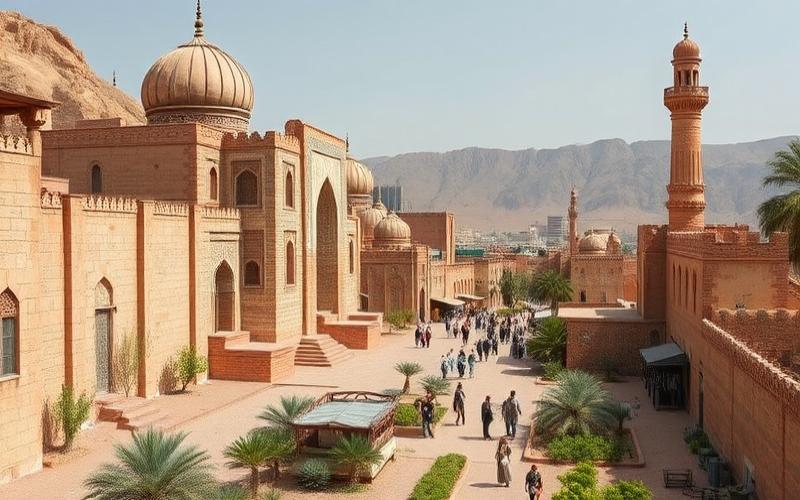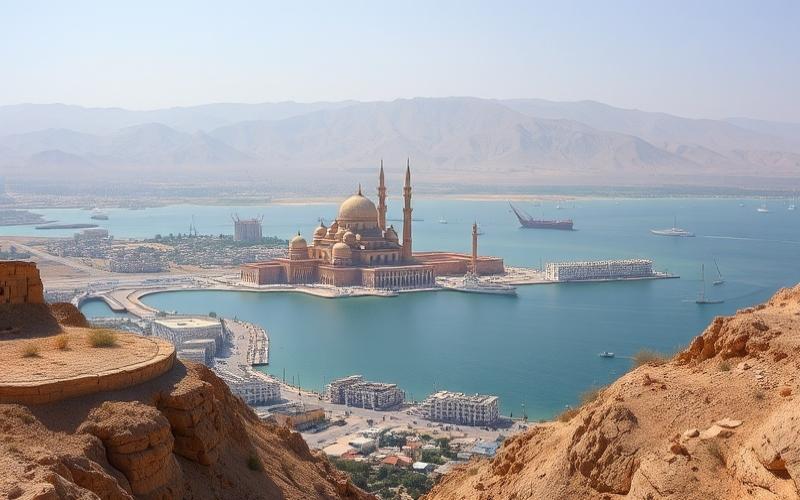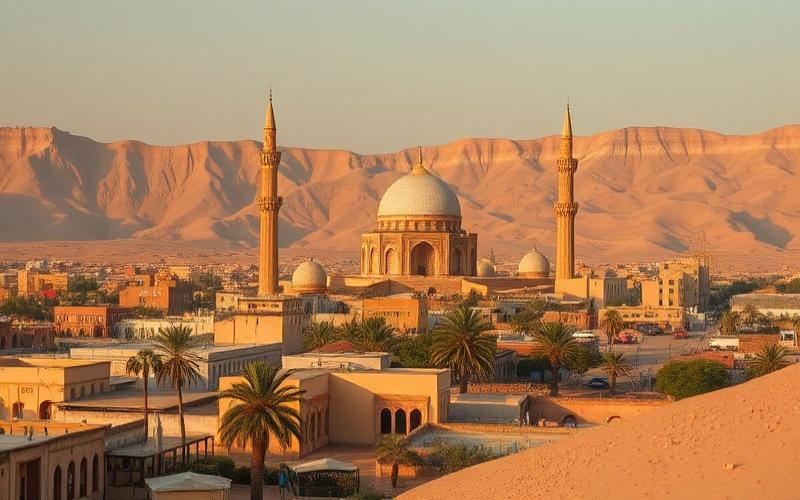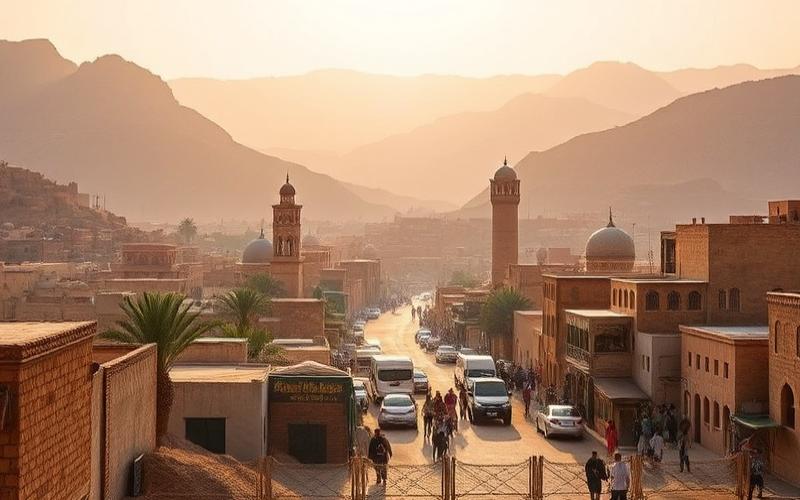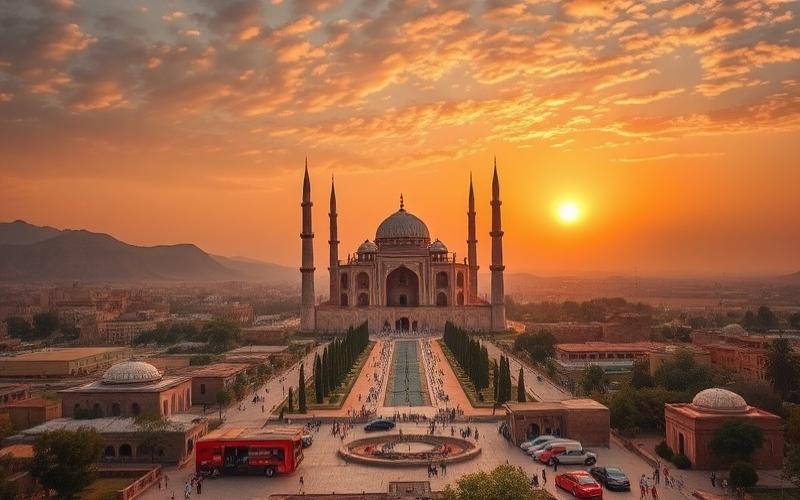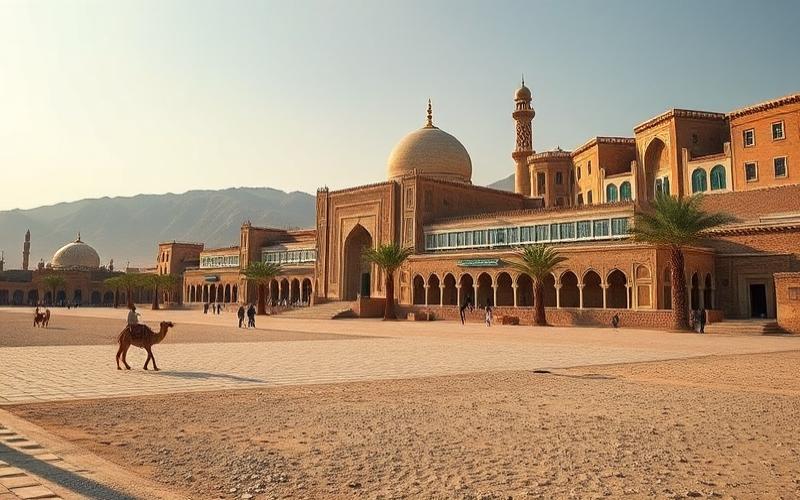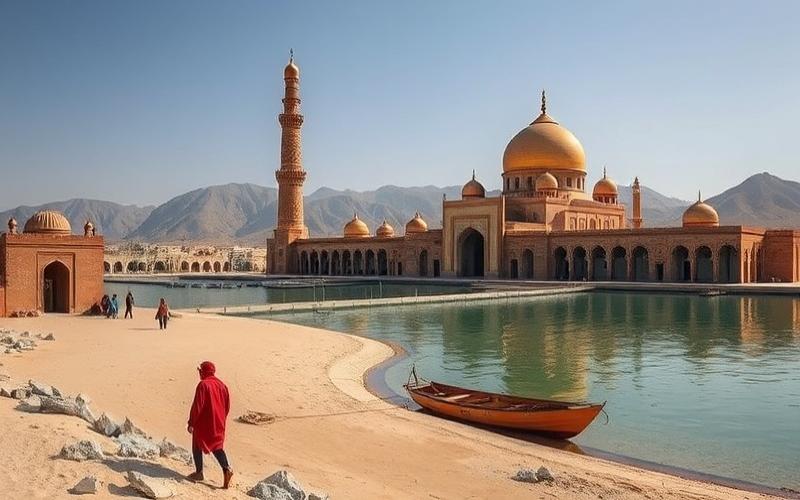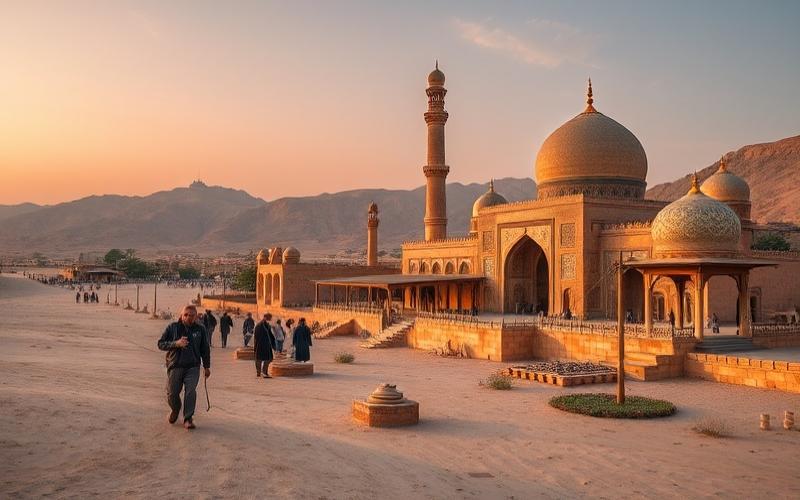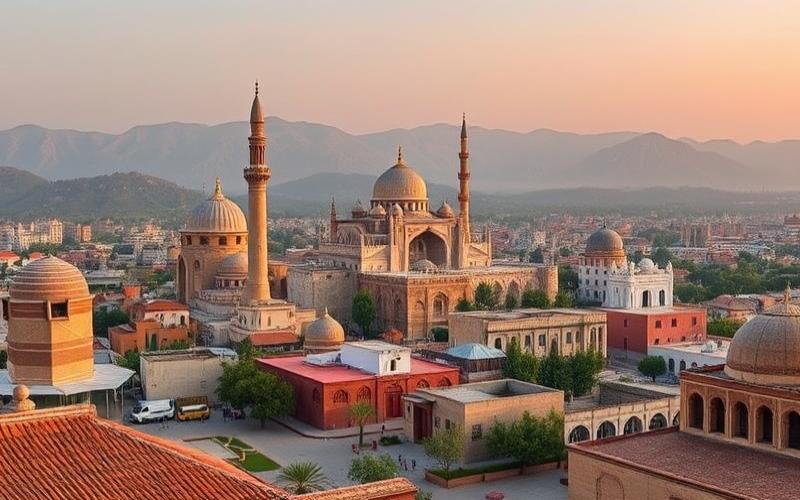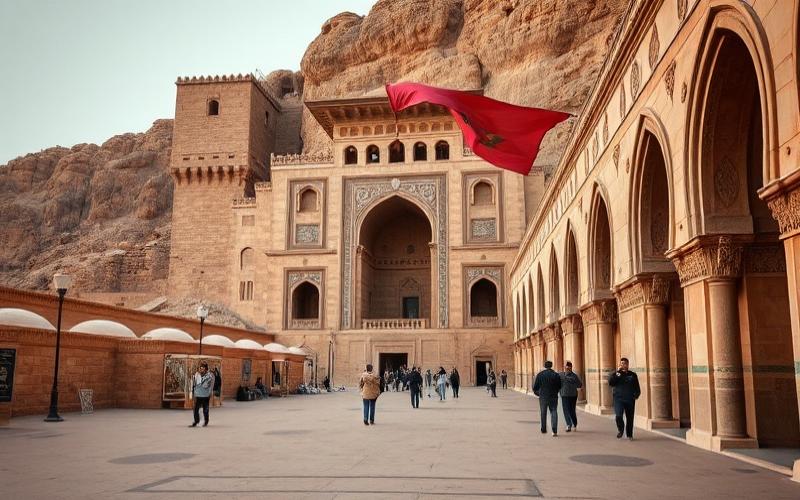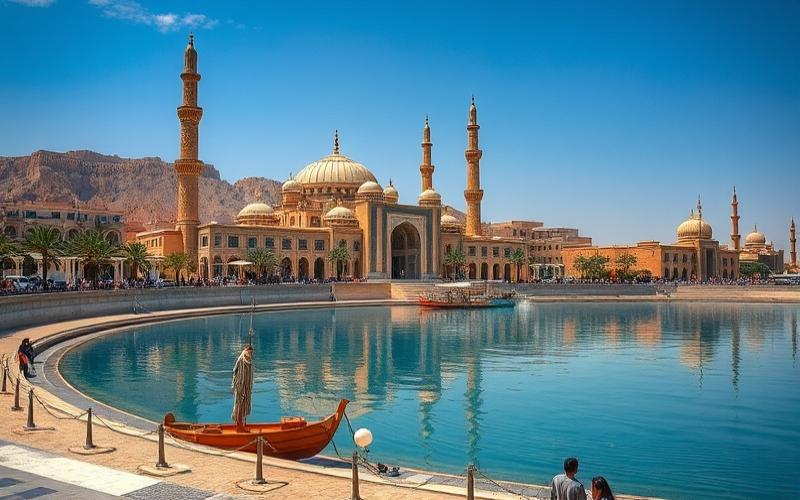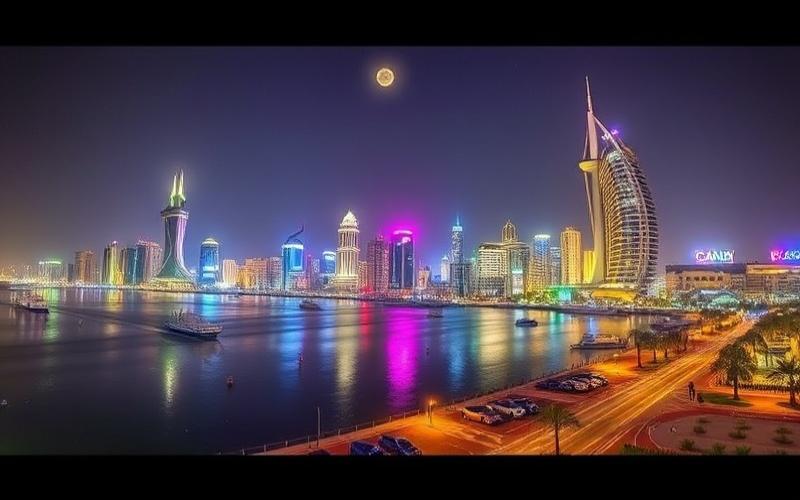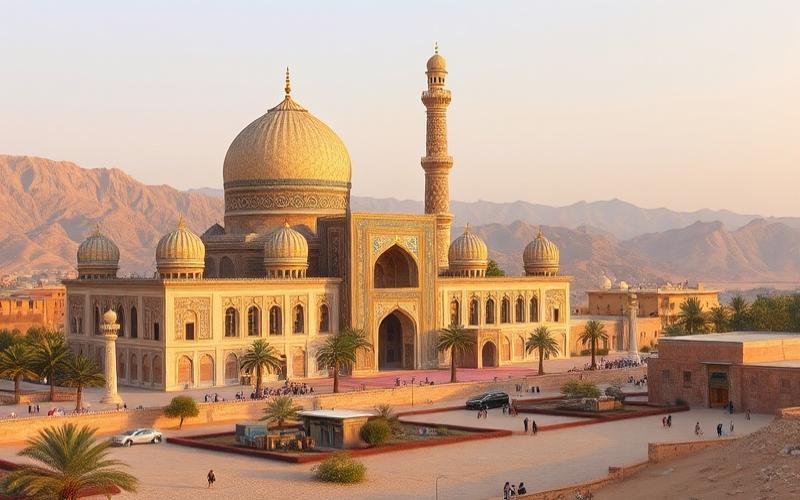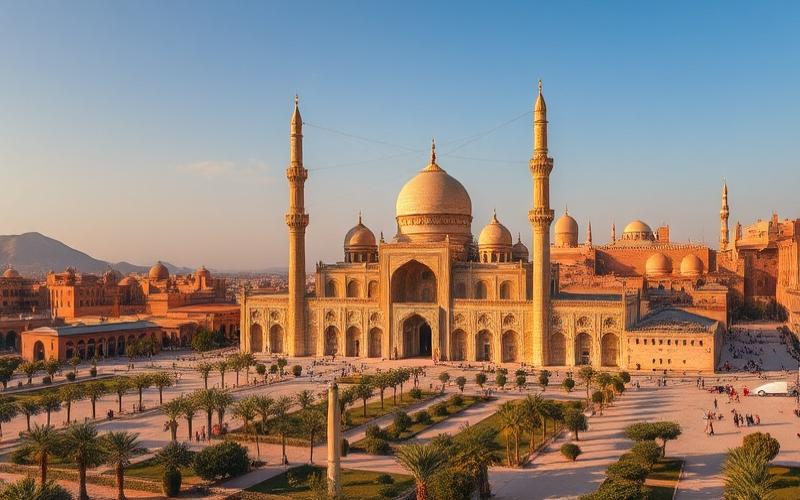
 Published on and written by Cyril Jarnias
Published on and written by Cyril Jarnias
Real Estate Investment: Bahrain vs. Its Gulf Neighbors
Investing in real estate is a crucial decision that warrants careful examination of available options, particularly in a dynamic region like the Gulf. This article provides an incisive comparison between property acquisition in Bahrain and its neighboring countries, to guide you toward a strategic and sound choice.
By evaluating both the economic strengths and cultural appeal of Bahrain compared to its neighbors, we will examine real estate market trends, growth opportunities, and risk factors to consider.
Whether you’re a seasoned investor or a newcomer interested in the region, this guide will provide the necessary insights to navigate the complex real estate landscape of this rapidly expanding region.
Good to Know:
Bahrain stands out with a regulatory framework favorable to foreign investors, offering 100% ownership possibilities in certain areas.
Positioning Bahrain in the Regional Real Estate Market
Bahrain’s real estate market is experiencing continuous growth, with an estimated value of $77.33 billion USD in 2025 and a projected annual growth rate of 3.30% between 2025 and 2029. This momentum is supported by favorable government policies such as economic diversification, development of new industrial zones, and the introduction of the Golden Visa to attract foreign investors.
Key Recent Trends:
- Increased supply: new residential projects (e.g., Sitra Housing).
- Population growth and influx of expatriates boosting demand.
- Improved financial accessibility for local and foreign buyers.
- Market stimulation through measures like the Golden Visa.
Key Figures (Bahrain):
| Indicator | Value / Trend |
|---|---|
| Market Value in 2025 | $77.33 billion USD |
| Annual Growth Rate | 3.30% (forecast until 2029) |
| GDP Growth | +2.1% in 2024 |
| High-End Apartment Prices | +1.4% year-over-year |
| Popular Property Types | High-End Apartments Family Villas Modern Rental Properties |
Regional Comparison:
| Country | Market Growth (%) | Government Policies | Average Villa Price ($) | Occupancy Rate (%) |
|---|---|---|---|---|
| Bahrain | ~3.3/year | Golden Visa Industrial Zones Economic Diversification Subsidized Residential Projects | Moderate Increase | Stable to High |
| United Arab Emirates (Dubai) | Long-Term Residency Expanded Rights for Expatriates | $32.2 Billion Villa Sales H1/25 | ||
| Saudi Arabia | Strong Stimulus via Vision2030 NEOM Mega-Projects |
Bahrain-Specific Advantages:
- Simplified administrative procedures for foreign investors.
- Lower entry cost compared to UAE or Qatar.
- Easier access to local bank financing.
Challenges for Buyers/Investors:
- Less liquid market than Dubai or Riyadh.
- Risks related to limited local market size.
- Increased competition in certain high-end segments.
Most Sought-After Property Types:
- Modern apartments in desirable neighborhoods (Seef, Juffair).
- Family villas near school/international infrastructure.
- Multi-functional buildings adapted for remote work and new lifestyles.
Future Outlook & Regional Competitiveness:
Bahrain is betting on sustainable development (green projects), real estate innovation, and the creation of major logistics infrastructure (new airport). Relative political stability along with advantageous taxation strengthen its competitiveness as an alternative destination in the Persian Gulf for real estate investments focused on stable rental yields or long-term capital appreciation.
Key Takeaway:
The Bahraini real estate sector continues its modernization through an active policy of openness toward international investors while remaining attractive due to controlled prices; its potential primarily relies on the diversification of available assets and its ability to quickly respond to regional demographic and technological changes.
Good to Know:
Bahrain is experiencing sustained growth in its real estate market, supported by favorable government policies, such as the law allowing free property ownership for expatriates. Residential prices in Bahrain are competitive, averaging $1,200 per square meter, lower than Dubai’s average of $2,800. Office occupancy rates are high, exceeding 85%, while the rental housing market particularly attracts young professionals and expatriates, with strong demand for modern apartments. Compared to neighboring countries, Bahrain stands out for its economic stability and developed infrastructure, although its market remains smaller than those of Saudi Arabia or the United Arab Emirates. However, challenges include the need for sustainable urban development to support growing demand. Development prospects are promising due to ongoing economic diversification, making Bahrain an attractive destination for regional investors seeking a less saturated and potentially more profitable market.
Analysis of Tax Benefits in Bahrain Compared to Neighboring Countries
Bahrain’s tax system stands out due to the absence of personal income tax for residents and expatriates. To date, no direct tax on individual income is applied, representing a significant advantage for individuals and real estate investors. However, recent developments include the introduction of a 10% value-added tax (VAT) and the implementation of a minimum tax on large multinational corporations starting in 2025, with no impact for the majority of individuals and local real estate investors.
Comparison Table of Main Taxes Applicable to Bahrain and Its Neighbors
| Country | Personal Income Tax | VAT (%) | Residential Property Taxes | Commercial Property Taxes | Taxation of Foreign Properties |
|---|---|---|---|---|---|
| Bahrain | None | 10 | None | None | None |
| Saudi Arabia | None | 15 | Tax on undeveloped land (White Land Tax) | Tax on undeveloped land | Restrictions on foreign ownership, tax on certain acquisitions |
| United Arab Emirates | None | 5 | Variable municipal fees | Municipal fees, sometimes property tax | Limited ownership rights in certain areas, transfer fees |
| Qatar | None | 5 | None (but registration fees) | None (but registration fees) | Restrictions, higher registration fees for foreigners |
| Kuwait | None | Not yet in effect (planned) | None | None | Restrictions on foreign ownership |
Details of Bahrain’s Tax System:
- Personal Income Tax: No tax on salaries or individual income.
- Corporate Tax: A tax on large companies (multinationals, global revenue > €750M) will be applied starting in 2025 at an effective rate of 15%, in compliance with OECD rules. This tax does not affect the majority of local companies or private real estate investors.
- VAT: Introduced at 5% in 2019, increased to 10% in 2022. VAT applies to most goods and services, including commercial real estate transactions, but sales of new or used residential properties are generally exempt.
- Property Taxes: No property tax on residential or commercial properties. No recurring levy on the holding or possession of real estate assets.
- Taxation of Foreign Investors: No specific tax or major restriction on real estate ownership for foreigners in authorized areas.
Comparison with Neighbors:
Saudi Arabia applies a higher VAT (15%), a tax on undeveloped land, and imposes limitations and taxes on foreign property ownership.
United Arab Emirates impose municipal fees on real estate, a 5% VAT, and limit foreign ownership to certain designated areas.
Qatar does not yet have VAT, but registration fees are required, particularly high for foreigners, and foreign real estate ownership remains restricted to certain neighborhoods.
Kuwait plans to introduce VAT but does not impose property tax; however, foreign ownership is very limited.
List of Implications for Real Estate Investors in Bahrain:
- Absence of Income Tax and Property Tax: Maximization of net rental yield, no recurring charges on property ownership.
- Limited VAT on Residential Real Estate: Residential real estate transactions are often exempt from VAT, reducing acquisition and holding costs.
- Regulatory Stability: Tax rules are considered stable and predictable, enhancing investor confidence.
- Accessibility for Foreigners: The possibility for foreign investors to acquire properties in designated areas without additional tax enhances market attractiveness.
Statistics and Economic Impacts:
The real estate sector represented approximately 5.4% of Bahrain’s GDP in 2023, with annual growth exceeding 4% despite the regional context.
Foreign direct investment flows in real estate increased by over 20% between 2022 and 2024, driven by the absence of direct taxation on property.
Expert Testimonials:
“The absence of income tax and recurring property tax in Bahrain offers superior net yield for real estate investors, particularly compared to its Gulf neighbors.”
“The simplicity of Bahrain’s tax regime, combined with market access for foreigners, makes Bahrain a destination of choice for wealth diversification in the region.”
Key Takeaway:
Bahrain stands out with ultra-competitive real estate taxation: no income tax, no property tax, limited VAT. These conditions promote high net yield and increased attractiveness for local and international investors.
Good to Know:
Bahrain stands out for its attractive tax system with no personal income tax and largely affordable property taxes for residential and commercial properties. Unlike its neighbors like the United Arab Emirates and Kuwait which apply a 5% VAT and specific taxes on foreign properties, Bahrain offers an advantageous tax environment for real estate investors. In Saudi Arabia, for example, VAT is also 5% and comes with stricter rules regarding foreign acquisitions. These policies make Bahrain a competitive destination for real estate investment, which has led to increased interest from international investors, illustrated by a 15% rise in real estate transactions in 2022. Experts emphasize that the absence of direct taxation promotes increased profitability for real estate investors, further strengthening Bahrain’s appeal as a strategic choice for real estate portfolio expansion in the Gulf.
Comparison of Real Estate Regulations Between Bahrain and Its Neighbors
Fundamental Aspects of Real Estate Regulations in Bahrain
- Foreign Ownership: Foreigners can acquire real estate properties with full ownership rights only in certain designated areas (e.g., Juffair, Amwaj Islands, Seef). Outside these areas, they can only access long-term leasehold (up to 99 years). Bahraini citizens have no purchase restrictions.
- Legislative Framework: Law No. 27 of 2017 governs the entire real estate sector and established the Real Estate Regulatory Authority (RERA), which oversees transactions, management, and sector regulation. The Survey and Land Registration Bureau (SLRB) handles land registration.
- Tax Incentives: Bahrain does not levy income tax or capital gains tax on real estate for individuals. However, some administrative fees exist during transaction registration.
- Recent Developments:
- Adoption in January 2025 of the Timeshare Law which strictly regulates this type of tourist activity through a licensing system issued by the Bahrain Tourism and Exhibitions Authority (BTEA).
- Strengthening of the digital system to accelerate and secure land transactions.
| Category | Bahrain |
| Foreign Ownership | Limited to certain designated areas |
| Taxation | No income tax or capital gains tax |
| Key Authority | RERA & SLRB |
| Recent Changes | Timeshare Law 2025; digitalization |
Comparison with Neighboring Countries
| Criterion | Saudi Arabia | Qatar | United Arab Emirates |
| Foreign Ownership | Limited access; permitted in specific projects since Vision 2030 | Purchase possible in a few “freehold zones” like The Pearl or Lusail | Full ownership possible for foreigners in many freehold areas in Dubai/Abu Dhabi |
| Tax Incentives | Limited tax exemption; VAT recently introduced | Absence of direct personal taxes | No income tax or capital gains tax |
| Regulatory Body | Ministry of Housing/Real Estate General Authority | Ministry of Justice/RERA Qatar | Dubai Land Department/RERA UAE |
| Recent Changes | Increased openness to foreign investors since Vision 2030 | Administrative simplification post-FIFA World Cup; expanded investor visas | Expansion of “freehold areas” and long-term visas (“Golden Visa”) |
Recent Concrete Examples and Impacts
- In Bahrain, legislative modernization with the Timeshare Law has strengthened the regulation of tourist investments while better protecting investors and consumers. Accelerated digitalization also facilitates acquisitions.
- In Saudi Arabia, the Vision 2030 program has enabled unprecedented openness to foreign capital through flagship projects like NEOM or The Red Sea Project—previously closed to non-Saudis.
- In Qatar, after the 2022 FIFA World Cup, several facilities were added to grant permanent residency permits linked to real estate investment in certain strategic areas.
- In the United Arab Emirates, Dubai continues to expand its “freehold areas” as well as its long-term visas linked to real estate (“Golden Visa”), strongly dynamizing its market among wealthy expatriates.
Advantages and Disadvantages by Market
- Bahrain
- + Accessible market via attractive policies for expatriates;
- + Modern/digitalized cadastre facilitating legal security;
- − Strong geographical restrictions limiting choices;
- − Relatively small market size.
- Saudi Arabia
- + Significant potential due to rapid economic development;
- + Large innovative projects open to international investment;
- − Sometimes heavy procedures/ongoing legislative adaptations;
- − Persistent limitations outside major official developments.
- Qatar
- + Modern free zones very attractive tax-wise;
- + Simplified administrative process post-World Cup;
- − Market less vast than Dubai / limited choices outside Doha;
- United Arab Emirates
- + Wide geographical range for freehold purchases;
- + Numerous incentives: complete absence of direct/personal taxes + associated residency visa;
- − Potential volatility linked to high international speculation;
Outlook
For foreign investors, Dubai remains the regional leader due to regulatory flexibility/attractive taxation. Bahrain is progressing thanks to its institutional stability but remains selective regarding zoning. Saudi Arabia now attracts through its mega-projects but remains subject to gradual adaptation. Qatar plays an intermediate card with few restrictions but an offer concentrated around major structuring urban hubs.
Good to Know:
In Bahrain, foreign ownership laws are relatively liberal, allowing non-nationals to own properties in certain designated areas, with tax incentives such as the recent renewal of no property tax to stimulate investments. In comparison, Saudi Arabia offers limited investment opportunities for foreigners, restricting full land ownership, although it has implemented reforms to encourage international partnerships. Qatar, while gradually opening its ownership options to foreigners, imposes specific conditions on the location of these properties, whereas the United Arab Emirates allow long-term ownership, but conditional on location, making cities like Dubai very attractive to foreign investors. Recently, Bahrain has eased some restrictions, but these changes contrast with regulatory modifications in the Emirates, which are more focused on diversifying investments. The Emirates also attract through a solid legal infrastructure protecting investors. Each market thus presents its strengths and weaknesses, with Bahrain standing out for its direct tax incentives, but facing competitive pressure from neighbors to more strongly enhance its international appeal.
Current Real Estate Market Trends in Bahrain and Neighboring Countries
Detailed Analysis of Real Estate Market Trends in Bahrain and Regional Comparison
Current Trends in Bahrain
- Sustained Market Growth: Bahrain’s real estate market is estimated at $77.33 billion USD by end of 2025, with an expected annual growth rate of 3.3% until 2029. The residential sector represents $279.82 million USD in 2025, with a compound annual growth rate (CAGR) of 6.11% from 2019 to 2033.
- Prices and Transactions: High-end apartment prices increased by 1.4% year-over-year, while villa prices remained relatively stable. There is an increase in transaction volume, supported by the arrival of new residential projects and an influx of expatriate buyers.
- Buyer Preferences:
- Strong demand for sustainable housing and eco-friendly buildings.
- Growing integration of home automation and smart home technologies.
- Popularity of integrated communities and co-living spaces.
- Supply: Supply is increasing thanks to large public projects (e.g., Sitra Housing Project) and the multiplication of planned neighborhoods.
- Supporting Factors:
- Population growth and urbanization policy.
- Favorable government policies (e.g., Golden Visa for foreign investors).
- Economic diversification, development of industrial zones, and expanding tourism.
Comparison with Neighboring Countries
| Country | Average Price (2025) | Price Evolution | Transaction Volume | Buyer Preferences | Housing Policy & Macro Factors |
|---|---|---|---|---|---|
| Bahrain | $279,820 (residential) | +1.4% (apartments), stable (villas) | Steady increase | Sustainable housing, smart homes, integrated communities | Golden Visa, political stability, economic diversification |
| United Arab Emirates (Dubai) | $32.2 billion (villa sales value H1 2025) | +65% (villa value) | +55% (villa volume) | Villas, luxury, rental investment | Strong openness to foreigners, massive investments, stability |
| Saudi Arabia | Data not specified here | Moderate increase (some cities) | Growth in secondary cities | Affordable housing, new cities (NEOM, Qiddiya) | Vision 2030 reforms, gradual opening to foreigners |
| Qatar | Moderate trend, stabilization post-World Cup | Slight decline after 2022, stabilization | Slight decrease | Urban apartments, rental investment | Strong state intervention, incentives for foreign investors |
Regional Similarities
– Growth driven by economic diversification, relative political stability, and attractive policies for foreign investors.
– Focus on innovative, sustainable housing integrating technology.
– Increase in supply in mid and high-end segments.
Notable Differences
– Dubai surpasses the region in transaction volumes and value, with more pronounced speculative dynamics.
– Bahrain remains more affordable, attracting clients seeking stability and long-term profitability.
– Saudi Arabia bets on large-scale new urban projects and targets local and regional populations.
– Qatar is experiencing normalization after a peak linked to the World Cup.
Macro-Economic and Policy Factors
– Political Stability: Bahrain, like the UAE, benefits from a stable environment, essential for investor confidence.
– Housing Policies: Public programs and tax incentives support local and foreign demand.
– Foreign Investments: Extended visa regimes (Golden Visa in Bahrain, long-term residency in UAE) facilitate property access for non-residents.
– Economic Diversification: Development of non-oil sectors (industry, finance, tourism) fuels real estate demand.
Expert Perspectives and Forecasts
– Experts anticipate continued growth in Bahrain, driven by expatriate demand and the multiplication of residential and infrastructure projects.
– Prices are expected to remain stable, with a slight increase in innovative segments (smart homes, eco-districts).
– In Dubai, volatility may remain high, but international demand supports the luxury market.
– In Saudi Arabia, supply will continue to grow with major urban projects; rental profitability is improving.
– Regional markets are perceived as resilient to global uncertainties but sensitive to interest rate policies and oil market conditions.
Influence on Purchase Decision in Bahrain
– Bahrain’s Assets:
– More accessible market than Dubai or Doha.
– Good stability, moderate taxation, attractive rental yield.
– Strong orientation toward sustainability and technology.
– Limitations:
– Less speculation and explosive growth than Dubai.
– Lower transaction volume than major neighbors.
Summary of Selection Criteria
| Criterion | Bahrain | UAE (Dubai) | Saudi Arabia | Qatar |
|---|---|---|---|---|
| Price Accessibility | ++ | — | + | + |
| Political Stability | ++ | ++ | + | ++ |
| Growth Potential | + | ++ | + | + |
| Rental Yield | ++ | ++ | + | + |
| Innovation / Sustainability | ++ | ++ | + | + |
| Ease of Foreign Investment | ++ | ++ | + | + |
Important Points to Remember
– Bahrain attracts for its stability, affordable prices, and long-term prospects, particularly for investors seeking a less speculative and more sustainable environment.
– Dubai remains the flagship market for volumes and rapid speculation, but with stronger volatility.
– Saudi Arabia and Qatar offer longer-term opportunities, focused on urban development and structural reform.
In 2025, Bahrain offers a real estate market with stable growth, supported by favorable policies, growing foreign demand, and an attractive positioning relative to its neighbors, particularly for investors seeking stability and innovation.
Good to Know: Currently, the real estate market in Bahrain shows relative price stability, influenced by growing demand in mid-to-high-end housing, and supply reinforced by development projects supported by the government. In comparison, the United Arab Emirates continue to see price increases mainly in Dubai, supported by strong foreign demand and rapid urban growth. Saudi Arabia is undergoing transformation with Vision 2030, stimulating investments in infrastructure and housing. Transactions in Bahrain, showing a slight increase, compare to a significant rise in the Emirates, particularly in terms of volume. Buyer preferences in Bahrain lean towards modern villas and apartments, while in the Emirates, luxury properties mainly attract foreign buyers. Bahrain’s political stability and policies favorable to foreign investors make its market attractive, unlike Oman, where regulation remains restrictive. According to experts, price stabilization is expected in Bahrain, benefiting from regional economic recovery and planned investment flows, thus offering a competitive choice compared to the prosperous markets of neighboring countries.
Disclaimer: The information provided on this website is for informational purposes only and does not constitute financial, legal, or professional advice. We encourage you to consult qualified experts before making any investment, real estate, or expatriation decisions. Although we strive to maintain up-to-date and accurate information, we do not guarantee the completeness, accuracy, or timeliness of the proposed content. As investment and expatriation involve risks, we disclaim any liability for potential losses or damages arising from the use of this site. Your use of this site confirms your acceptance of these terms and your understanding of the associated risks.


